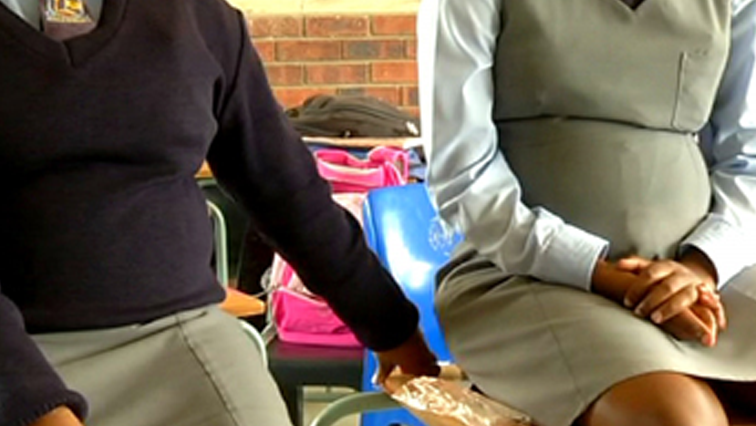By ROD AMNER
A new school pregnancy policy recently approved by Cabinet will allow learners who fall pregnant to stay in school longer and return sooner.
The policy, which will be implemented in 2022, affirms the right of a pregnant learner to remain in school during her pregnancy and return as soon after giving birth “as is appropriate for both the learner and her child”.
The SABC reported that the National Council of Provinces recently heard that about 120 000 learners fall pregnant every year, with only a third returning to school after birth.
According to the policy document, “the school is required to reasonably accommodate the learner to ensure that her right to education is not disrupted or ended by pregnancy or the birth of her child”.
“This may imply short to medium-term absences from school and an undertaking to hold a place in the system for the return of the learner and the completion of her primary education. The school, family and broader community also must ensure the continued education of the affected learner and to support after the pregnancy.”
The policy recognises that many learner pregnancies occur as a result of both consensual and non-consensual sex.
Consensual sex means a voluntary or uncoerced agreement that can be given through words or actions. It cannot be forced or given under duress.
A child below 12 cannot consent; hence, sexual intercourse with a child below 12 is always considered rape by the law, even if the child factually consented.
A child between the ages of 12 and 16 can consent, but if consent is given to a person 18 years or older, the latter is guilty of the crime of statutory rape.
An educator must never have sex with a learner, irrespective of consent given by a learner 16 years and older, because this is prohibited conduct for educators.
But Madeleine Schoeman, Principal of Ntsika Secondary School, draws necessary attention to what, or rather who, the policy seems to have forgotten: the school-going father.
She asks: “What drove him into a relationship with a young girl who is often more than two years younger than he is? Does he know about statutory rape and rape, and does he realise it applies to him, too? Moreover, do parents and the school-going mother and father know that school principals must report the pregnancy to SAPS if the pregnant learner is under the age of 16?”
Centre for Social Development’s (CSD) Nicci Hayes also commented on the absence of the father of the child in the messaging and how one finds that too often “the injustice of all the responsibilities – good and bad – falling on the mother of the child.”
Overall, more than 200 000 learners did not return to school in 2021.
Hayes said, “The assumption that pregnant girls leave school because of moralistic attitudes of schools and teachers. My experience is exactly the opposite. I have found the majority (by far) of teachers – regardless of their own religious or moral stance – to be deeply supportive of pregnant scholars.”
NCOP Chairperson Amos Masondo highlighted some of the social factors leading to learners dropping out of school: “There are many reasons for school dropouts, from family commitment, illness, lack of interest and poverty. Whatever the reasons, we need to find workable solutions to reduce and ultimately eradicate the phenomenon of school dropouts drastically.”
Basic Education Deputy Minister Reginah Mhaule told the NCOP that proposed changes to the Basic Education legislation will also address the school dropout rate.
“The first person who identifies that a learner is not coming to school is a teacher. The teacher must report to the principal, who then reports to the School Governing Body (SGB). The SGB has a contract with parents to make sure that parents allow their learners to go to school.”


